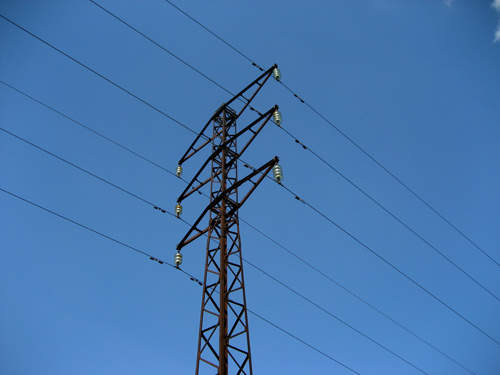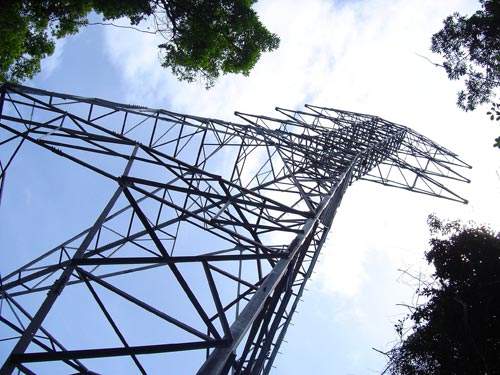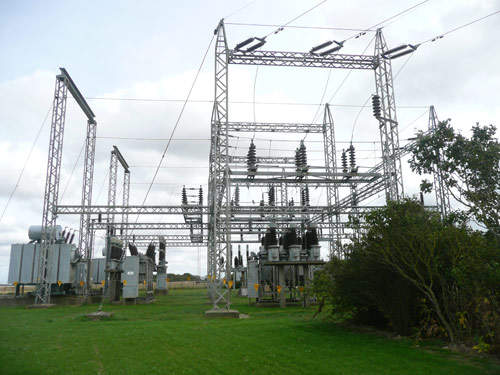The Beauly-Denny upgrade in Scotland is an overhead power transmission line replacement project. It will replace the 132kV transmission line between Beauly and Wharry Burn, with a 400kV double circuit line. This line is the weakest leg of the Scottish transmission ring. The upgrade is expected to ensure a more reliable and economical transmission network. It will increase Scotland’s capacity to handle renewable energy over the coming years.
Undertaken by Scottish Hydro Electric Transmission (SHETL) and Scottish Power Transmission (SPT), the project is estimated to cost £300-£400m.
SHETL and SPT sought approval to construct and operate the transmission line from the Scottish Government in September 2005. Approval was given on 6 January 2010, with the condition that the project be commissioned within the next ten years. The initial analysis of the conditions by the ministers, during approval, was completed by May 2010. 18 months of pre-application public consultation for the project was carried out by SHETL, which stated that the new 400kV overhead line should not pass through any of the designated National Scenic areas.
In November 2011, Balfour Beatty was awarded a £290m contract to replace the 200km long existing power transmission line from Beauly to Wharry Burn. The contract, which is an important part of the project, comprises of project design, development, material supply, and erection of an overhead power transmission line of 400kV. The contract also calls for the construction of temporary slip roads. This part of the project is down to be complete by 2015.
Beauly-Denny upgrade project details
In addition to the construction of a new transmission line between Beauly and Wharry Burn, the project involves building substations at Beauly, Fasnakyle, Fort Augustus, Tummel Bridge, Braco and Denny. All the substations consist of a fenced area containing transformers, switch gear and overhead line towers. The existing line will be dismantled.
The development of this leg will increase the strength of the other elements of the ring, by reconducting and reinsulating the existing tower routes and substation extensions.
The replacement line is 220km long, of which 200km falls under SHETL, while the remaining 20km comes under SPT. About 60% of the line will have the same route as the existing line.
This includes removal of 132kV transmission lines in three sections of 6km around Beauly to replace them with the underground cables.
Between Boat of Garten and Cairnmore in the Cairngorm National Park, 53km of 132kV lines will have to be removed. Furthermore, 40km of 132kV overhead transmission line in the Cairngorm National Park will be replaced by 33kV overhead lines over wooden poles or underground cables.
Sections in Whitebridge and around Amulree totalling 10km will also be replaced with underground cables.
The new transmission system will include 600 towers, 215 towers fewer than the existing line. The towers, however, will be taller than the existing ones. About 80% of the towers in the new transmission line will be less than 57m tall, based on the topography and the altitude. The existing line has 815 towers with heights ranging from 25m to 42m. The tallest tower will be 65m high and the shortest will be 42m. The towers will have an average spacing of 360m compared with current gap of 250m.
Transmission line route
The route of the new transmission line was developed over a period of three years and published in July 2005. The proposed route has been designed considering the impact of the replacement line on the landscape.
Of the 220km, 102.6km of the line will cross through the Highland Council area, while 89.5km will fall in the Perth and Kinross Council areas. The line will run for 27km in Stirling Council and for 0.9km in Falkirk Council. The line will run for 28km in the National Park.
The line will pass through the Drumochter region at two different locations and once through Braco.
Transmission system construction
The Scottish Government’s consent to the project requires construction work to begin within four years. Electricity transmission needs to start within six years after the construction begins.
The construction work involves laying of access tracks, installation of tower foundations and towers, stringing of conductors and restoration of land.
Prior to the construction of new tower foundations, the existing foundations will be removed to a depth of 1m below ground level. New foundations will be dug up to 16m² for Line towers, and up to 25m² for angle towers.
Dismantling of the existing transmission line requires removal of tower foundations and the re-establishment of ground cover. The steel towers and aluminium conductors will be recycled.
The construction is expected to provide employment for more than 300 workers.
Beauly-Denny project finance
SHETL and SPT will invest about $300m in this project. The companies are authorised to recover the investments through "use of system" charges, which are levied by National Grid Electricity Transmission on generators and suppliers of electricity.






